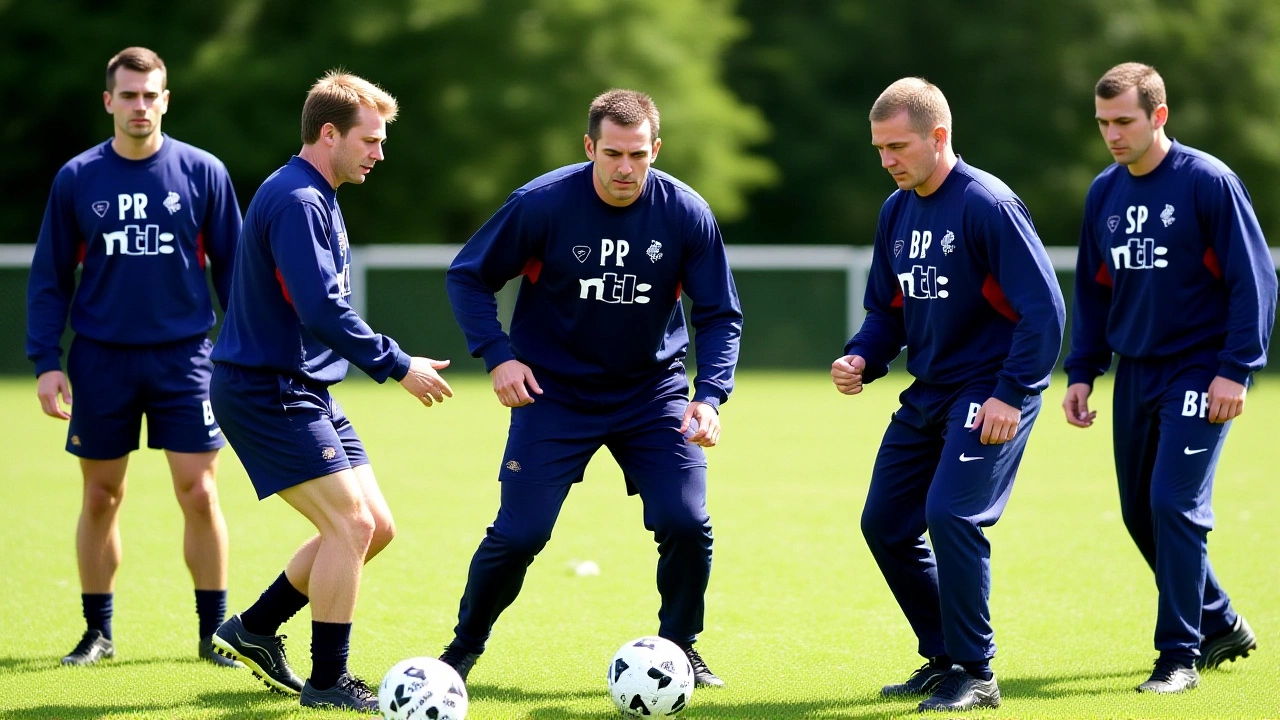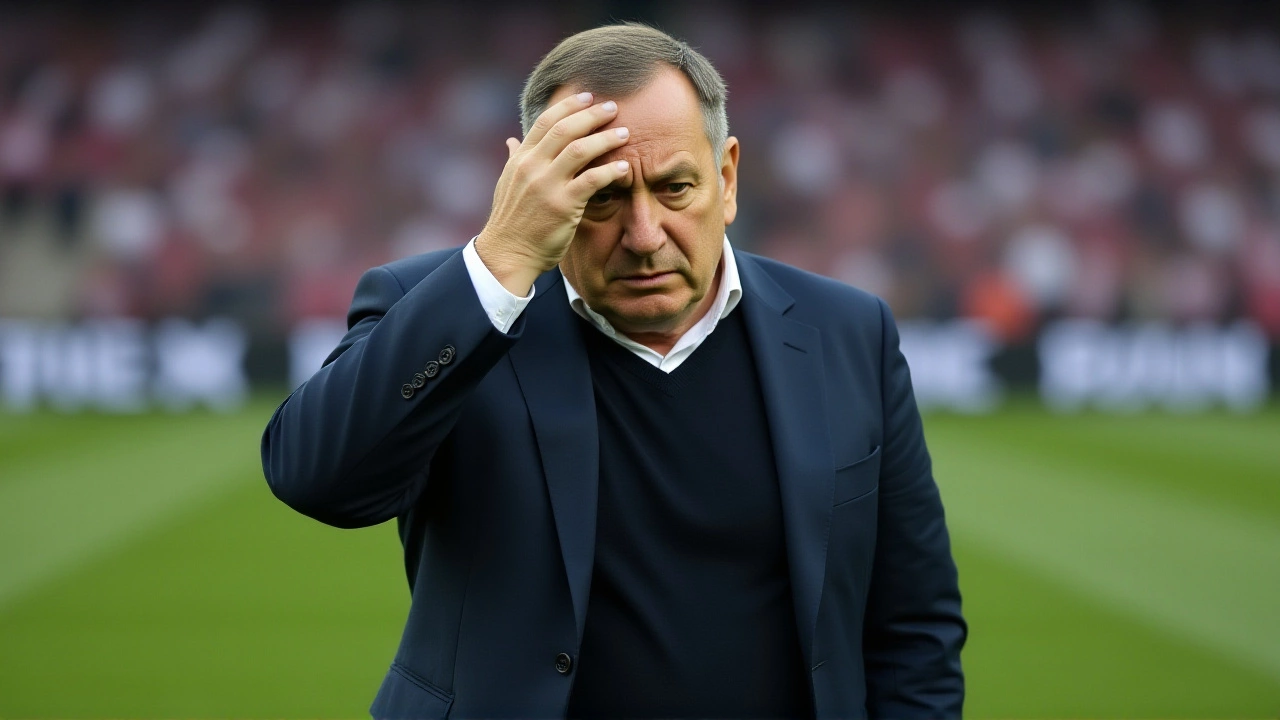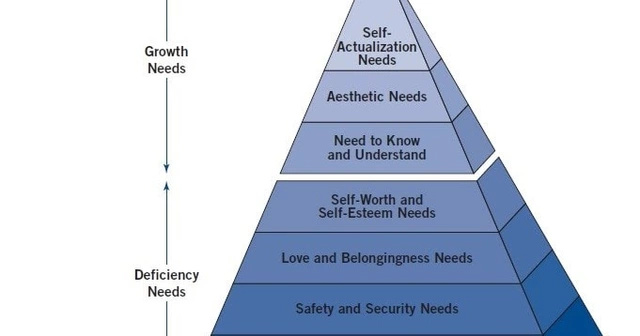When Dick Advocaat walked into the Academy of Light training facility on Sunday, August 16, 2015, he didn’t bring a clipboard. He brought silence—and fury. The 68-year-old Dutch manager had just watched his Sunderland Association Football Club crumble 3-1 to Norwich City Football Club at the Stadium of Light, their second straight Premier League defeat. And he wasn’t mincing words. "My side is even worse than last week," he told reporters afterward. That wasn’t just frustration. It was a warning. To his players. To the board. To everyone who still believed this team could survive the season.
Two Losses, Zero Points, and a Team in Freefall
It started with a 4-2 home demolition by Leicester City Football Club on August 8, a result that stunned fans and pundits alike. But the loss to Norwich on August 15 was worse. Not just because of the scoreline. Because of what it revealed. Norwich, a newly promoted side with a budget barely half of Sunderland’s, carved them open with clinical precision. Cameron Jerome opened the scoring at 28 minutes. Nathan Redmond doubled the lead just before halftime. And in stoppage time, Dieumerci Mbokani—once a Sunderland target—sealed it with a tap-in. Sunderland’s only response? A 71st-minute penalty from Jermain Defoe, their 33-year-old veteran striker. It felt like a consolation. It was a funeral march.The attendance? 42,513. A near-capacity crowd at the Stadium of Light, one of the Premier League’s most passionate venues. But instead of roaring, they booed. Quietly at first. Then in waves. By full-time, the chants of "Advocaat out" echoed through the stands. The Dutchman didn’t need to hear them. He’d already seen it in their eyes.
The Meeting That Could Cost Him His Job
The emergency team meeting at the Academy of Light on Sunday wasn’t a pep talk. It was an interrogation. According to reports from ESPN FC and FourFourTwo, Advocaat demanded each player explain their performance. No excuses. No blaming the ref. No talking about injuries. Just answers. And when they didn’t come fast enough, he reportedly slammed his fist on the table. "We’re not just bad," he told them. "We’re lazy. We’re disorganized. We’re not even trying to fight."Lee Congerton, Sunderland’s sporting director, sat silently through the session. His role had been to rebuild the squad after Gus Poyet’s departure in March 2015. Now, he was watching his project unravel. Advocaat’s contract had 10 months left, with performance clauses that could extend it. But after two losses and zero points, those clauses looked like paper promises.
Bookmakers at William Hill PLC reacted instantly. Odds dropped to 8/11 that Advocaat would become the first Premier League manager sacked in the 2015-16 season. That’s not just a favorite. That’s a near-certainty. In football, when the odds are that low, the writing’s not just on the wall—it’s spray-painted in red.
A Manager Who Once Won It All
It’s hard to reconcile the man who led PSV Eindhoven to three consecutive Eredivisie titles, who won the Scottish Cup with Rangers, and who once coached Russia at the World Cup with the figure now pacing the training ground in Sunderland. Advocaat isn’t a novice. He’s a veteran of 33 years in management. But this isn’t about experience. It’s about adaptation.Sunderland’s squad, assembled with big names and big wages, had no cohesion. Defoe was isolated up front. The midfield, once a strength under Poyet, was being overrun. The full-backs were exposed. And the defense? A mess of miscommunication and misplaced passes. Advocaat’s rigid, old-school tactics—long balls, physicality, set pieces—were being dismantled by a Norwich side playing fluid, attacking football. The game had passed him by.
"He’s not a bad manager," said one former assistant, speaking anonymously. "But he’s coaching a 2005 team in a 2015 league. The players aren’t bad. They’re just confused."

What’s Next? The Watford Lifeline
Sunderland’s next match, on Saturday, August 22, 2015, at Vicarage Road Stadium against Watford Football Club, isn’t just another fixture. It’s a survival test. Watford, under Quique Sánchez Flores, were flying high after a 2-1 win over West Ham. They were hungry. Sunderland? Desperate.If Advocaat loses again, the board won’t wait. Ellis Short, the American owner who bought the club in 2009, has already signaled he won’t tolerate a relegation battle. The club’s financial stability depends on Premier League revenue. Two losses? Acceptable. Three? Unforgivable.
And if he wins? A single victory won’t save him. Not with a goal difference of -5 and no wins in two games. But it might buy him time. Maybe one more week. Maybe one more training session. Maybe one more chance to fix what’s broken.
But here’s the thing: football doesn’t reward second chances. Not when the fans are chanting for your head. Not when the bookmakers have already priced you out. Not when your own players look at you like you’ve forgotten how to play the game.
Frequently Asked Questions
Why is Dick Advocaat under so much pressure after just two losses?
Sunderland finished 16th last season with 40 points—barely avoiding relegation. After two defeats and zero points in 2015-16, they’re already in the relegation zone with a -5 goal difference. Fans and owners expect more from a club with their history and budget. Advocaat’s conservative tactics and lack of tactical adjustment have made him the obvious scapegoat.
Who are the key players failing Sunderland this season?
Midfielders Lee Cattermole and Jordan Henderson (on loan) have been ineffective in controlling games, while full-backs Sebastian Larsson and Patrick van Aanholt have been repeatedly exposed. Jermain Defoe, though still scoring, is isolated without service. The defense, led by John O’Shea, looks slow and disorganized—especially against quick, passing teams like Norwich.
Could Advocaat still turn things around?
It’s possible, but unlikely. He’d need to completely overhaul his tactics—switching to a more attacking formation, giving younger players like Duncan Watmore a chance, and improving communication on the pitch. But with only 10 months left on his contract and no transfer window until January, his options are severely limited. The players don’t believe in him anymore.
What happens if Sunderland gets relegated?
Relegation would cost Sunderland an estimated £100 million in lost TV revenue, sponsorship, and matchday income. Owner Ellis Short has already invested heavily in the club since 2009, and another relegation would likely trigger a full rebuild—or even a sale. Advocaat’s legacy would be over. The club’s future would be in doubt.
Has any manager been sacked this quickly in Premier League history?
Yes. In 2007, Avram Grant was sacked by Portsmouth after just four games. In 2014, Steve Bruce was dismissed by Aston Villa after three losses. But none of those managers had Advocaat’s experience or reputation. His situation is unusual: a veteran in crisis, not a rookie out of his depth. That makes the pressure even more intense.
What are the odds Advocaat stays beyond August?
As of August 17, 2015, bookmakers had lowered his dismissal odds to 1/4 after Watford’s 2-1 win over West Ham made the upcoming match even more critical. If Sunderland loses to Watford, his exit is all but guaranteed. If they win, the board might give him one more week. But trust? That’s already gone.



